Those w/ floating LVP on concrete: How "perfect" are your sub floors?
R H
5 years ago
Featured Answer
Sort by:Oldest
Comments (37)
millworkman
5 years agoR H
5 years agoRelated Discussions
For Those Of You With Stained Concrete Floors
Comments (19)We have stained concrete floors and the trowel machine with paddles is what is used to put a steel trowel finish on the concrete in large warehouses. It is perfectly fine for your foundation contractor to use that. We have dings and divits in our floor, but we love it. There are actually leaves that got stuck in the concrete since we put our foundation in during the fall and the contractor couldn't keep the leaves off. ITs great. We have about 3000 SF of stained concrete. I'm looking for a fast way to sweep and scrub it. Large warehouse machines are too much. 15,000 sq ft/hr coverage. Looking for a commercial grade machine that will clean, squeegee and buff but haven't found one yet. That would make it much faster to clean. It is really easy to keep up, just time consuming because of the volume. Check out my building process at http://www.myhomebuildingmentor.com/blog...See MoreHow to determine if I can use Floating Floor?
Comments (3)Your click together floor routinely requires a flatness ratio of 3mm over 3meters (1/8" over 10 feet). So take out your handy-dandy-trusty-dusty 10 ft level ('cause we all have one of THOSE ;-P) and sweep it across your basement floor. When it starts to teeter-totter, you measure it. You circle the humps and put an "X" through the centre (to show that you need to SAND DOWN the hump) and then you circle the dips (no X) to show that you need to FILL the hollow. Repeat until the entire floor has been assessed. Step back and see how many "Circle-X" and "circle-empty" things you have. See how much work you have in front of you. And then decide if your DIY skills are going to get this done...or whether or not carpet starts looking a lot better. And you will still need a vapour barrier (plastic sheeting) no matter what type of floating floor you decide on. Or you can SKIP all that...knock down the high-spots as best as you can, lay down the vapour barrier, install the cork (the HDF has a STRONGER grab with the cork floating floor than a vinyl click floor) and be "OK" with the occasional bit of movement when you walk on the floor. The warranty would be completely void...but the cork floating floor will give you 15 years or so. You have to be OK with a bit of movement under foot. It will not feel as "solid" as you would like...but then again you didn't do the prep that the floor would like. Compromise is the name of the game....See MoreFloor guy says GLUE. I wanted FLOAT. Which best for concrete slab?
Comments (50)Hi @Lynn Morford, I hate to jinx things, but now three months in, I LOVE the floors. I fact, I admire them many times a day (good distraction from current CV craziness). There are about a dozen spots where there were dings or tiny cracks, which freaked me out at first, but I'm pretty sure it was just from the movers. I do take care of them like a newborn child, though--sweep, vacuum, wipe, repeat. Overall, I'm very happy with them! @everdebz, we ended up gluing down. Definitely harder on my body that floating but I've learned to wear slippers or socks and I have yoga mats in most rooms to give my feet a little vacation as I walk through the house, lol. In the end, I trusted @joseph_corlett's comment about letting the contractor make the call on what is best for the situation. Granted, I still pine for the perfect floating feel of my old Junckers flooring, but apparently theirs were unique and most other flooring can't float the same way, so... Anyway, the sad fact is, you can't remove glue-downs without destroying the boards. So fingers crossed you never have to! (I put fake wood in my laundry room and we've already had three floods, so thank god for that decision.)...See Morefloating LVP over wood and slate tile- help!
Comments (7)Thanks for the input. I’ve been at a stall trying to design around these pieces and having trouble. To answer Q… this flooring is not on concrete subfloor- we are on a raised foundation on a slope. After more thought I think I will try to get a quote for laying similar wood in the kitchen and resurfacing if all to same color at some point. Seems expensive but probably around same cost as some of the engineered hardwood click locks and LVP I’ve seen… I guess I’ll find out. Anyone know what possible cost range would be? (I’m near Santa Cruz CA for reference)...See MoreCheryl Hannebauer
5 years agofreeoscar
5 years agoR H
5 years agoCheryl Hannebauer
5 years agoJoseph Corlett, LLC
5 years agoG & S Floor Service
5 years agoCreative Tile Eastern CT
5 years agoR H
5 years agoR H
5 years agoJ Kay
5 years agoR H
5 years agoG & S Floor Service
5 years agoJAN MOYER
5 years agolast modified: 5 years agomillworkman
5 years agolast modified: 5 years agoR H
5 years agochocolatebunny123
5 years agoCinar Interiors, Inc.
5 years agoR H
5 years agoCinar Interiors, Inc.
5 years agoR H
5 years agoR H
5 years agoR H
5 years agoSJ McCarthy
5 years agomandicat62
2 years agoR H
2 years agoGrey Greenwald
2 years agoHU-276250070
2 years agoHU-556009527
last yearJoel F
11 months agolast modified: 11 months agoRichard Fisher
8 months agoRichard Fisher
8 months agoShadyWillowFarm
8 months agoR H
4 months agoTimothy Martin
29 days ago
Related Stories

FLOORS5 Benefits to Concrete Floors for Everyday Living
Get low-maintenance home flooring that creates high impact and works with home styles from traditional to modern
Full Story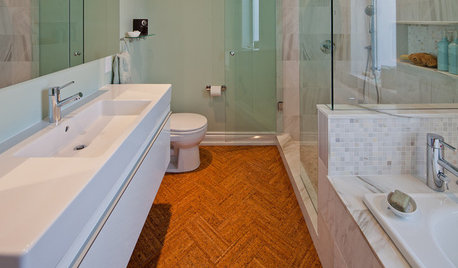
FLOORSWill Cork Float for Your Bathroom Floor?
Get the facts on advantages, disadvantages, costs and installation to see if a cork bathroom floor is right for you
Full Story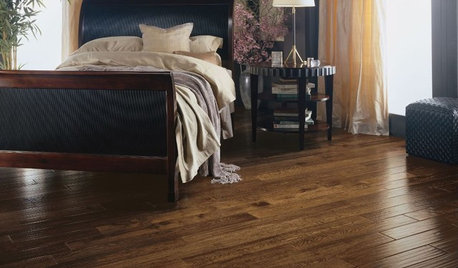
REMODELING GUIDESYour Floor: An Introduction to Solid-Plank Wood Floors
Get the Pros and Cons of Oak, Ash, Pine, Maple and Solid Bamboo
Full Story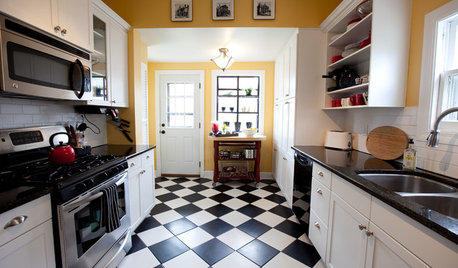
KITCHEN DESIGNKitchen Flooring 101: Find Your Material Match
From cork to concrete, our guide will help you pick the perfect surface for your kitchen floor
Full Story
REMODELING GUIDESWhat to Know About Engineered Wood Floors
Engineered wood flooring offers classic looks and durability. It can work with a range of subfloors, including concrete
Full Story
FLOORS6 Alternative Flooring Ideas to Kick Up Your Style
Rubber, cork, concrete and other materials are worthy options in lieu of hardwood or tile
Full Story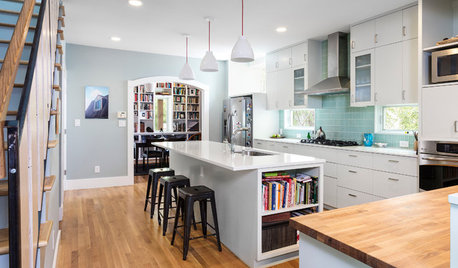
MOST POPULAR6 Kitchen Flooring Materials to Boost Your Cooking Comfort
Give your joints a break while you're standing at the stove, with these resilient and beautiful materials for kitchen floors
Full Story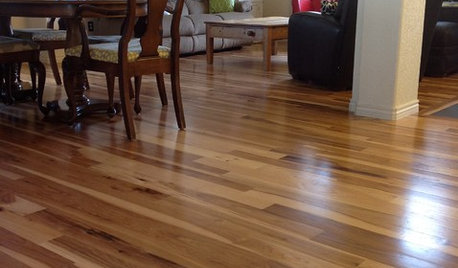
MATERIALSWhat to Ask Before Choosing a Hardwood Floor
We give you the details on cost, installation, wood varieties and more to help you pick the right hardwood flooring
Full Story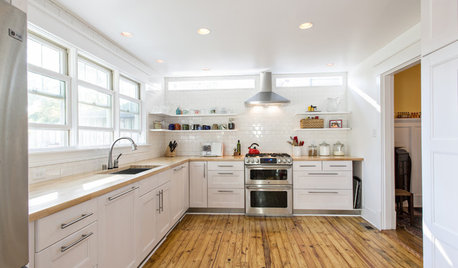
REMODELING GUIDESWhat Lies Beneath That Old Linoleum Kitchen Floor?
Antique wood subfloors are finding new life as finished floors. Learn more about exposing, restoring and enjoying them
Full Story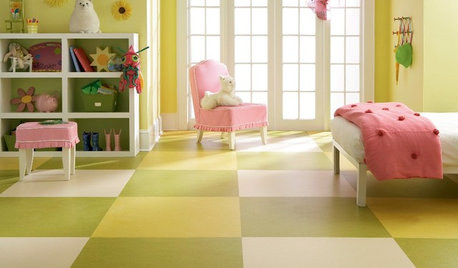
REMODELING GUIDESThe Case for Linoleum and Vinyl Floors
Have pets, kids and a tight budget? Easy-care resilient floors may be the choice for you
Full StorySponsored
Your Industry Leading Flooring Refinishers & Installers in Columbus



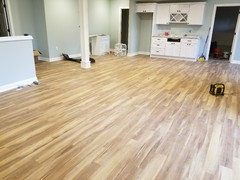
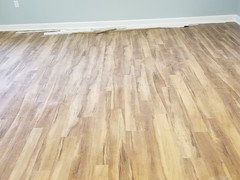
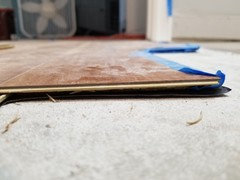
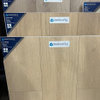

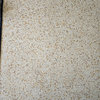
User